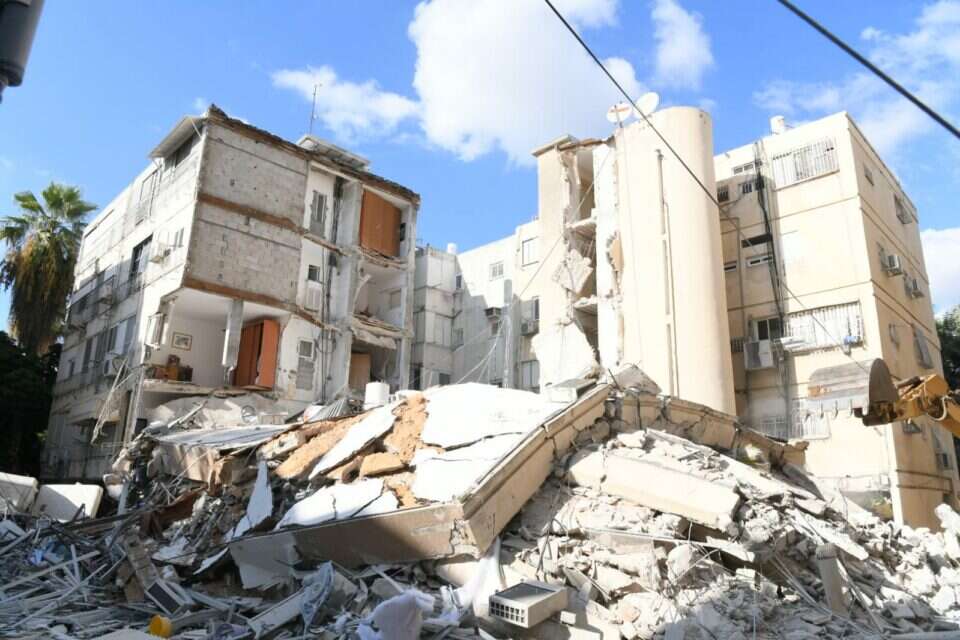The collapse of the building in Holon is a powerful alarm bell, which fortunately, thanks to people who raised their heads in the area of this difficult event, ended without casualties and deaths.
However, it is not possible to continue in the current situation, and the state must take responsibility for a huge amount of buildings that have been weathered, and are spread over tens of thousands across the country.
The beginning of the situation was in the burning need of the state in the 1950s and 1960s to provide sustainable housing to the large world public, who immigrated to Israel at once and in great waves.
The state was poor, and there was a desire to evict the immigrants from the transit camps.
Therefore, we quickly built quality buildings that could be provided at an equal price per capita.
It was a good and large enterprise that was good for its time, but today, 70 years later, it is a large accumulation of buildings spread over the whole country which is in a state of very advanced weathering.
Here ostensibly the state should have entered, mapped all these structures and acted to prevent their collapse.
But the state escaped responsibility through a decision on TMA 38, which means that the free market will rehabilitate the buildings by strengthening and building more floors, for marketing to new buyers.
But the whole issue of TMA 38 is possible in places where there is a demand for land: North Tel Aviv, Givatayim, Kfar Saba, Herzliya, Raanana. On the other hand, the old buildings are spread all over the country in many places where municipalities and populations are poor. The buildings.
The state had to set priorities and risks, as well as check privately, in each city, how much it and the residents could help, and how much the state had to support the local authority and its public.
But the state is running away from responsibility.
The Ministry of Finance does not want to put his hand in his pocket to pay, and in this way a very dangerous reality is created.
This reality is twice as dangerous in Israel.
First, because such structures are collapsing at their own pace, as we saw in Holon this week.
Second, and worse, in Israel there is a constant cycle of strong earthquakes that have destroyed cities in the past, including for example the city of Ramla.
With a strong earthquake, thousands of buildings will fall at once across the country, and the disaster will be very great.
It will first hit the cities near the noise point, and it could hit Eilat, Beit She'an, Tiberias and Safed.
Even in these cities there is a poor public, which can not rehabilitate and maintain its buildings.
But the noise will not only affect the fault area where it will occur, but will reach its effects even as far as the coastal cities.
Even in the lowlands, many buildings are in danger of collapsing.
They have warned the state of this since 2005, explaining that thousands or tens of thousands of buildings - no one really knows how many there are - are in danger.
But the state escaped responsibility for NPA 38. This is a dangerous market failure.
What needs to be done is to impose on a national projector, for example the Home Front Command, to map all these buildings, rate their risk and start an orderly rehabilitation program.
You really have to start with that as long as the warning bells ring loudly.
Beyond the state, there is also a responsibility to the public itself and to the local authorities.
The city engineer can determine that a building is about to fall and warn about it, and the public itself should also check the condition of the old building in which it lives.
Of course, the local authorities are also responsible.
In the state of the country, however, it is quite clear that rich gates and a rich public will deal with the problem alone, and poor places will not be able to deal with it well and quickly.
Here one should not rely on the free market and economic approaches of a free market, but return to the responsibility of the public that was in the country in the 1950s and 1960s, when all these projects were built that were blessed for the time, but worn out and weakened to this day.

